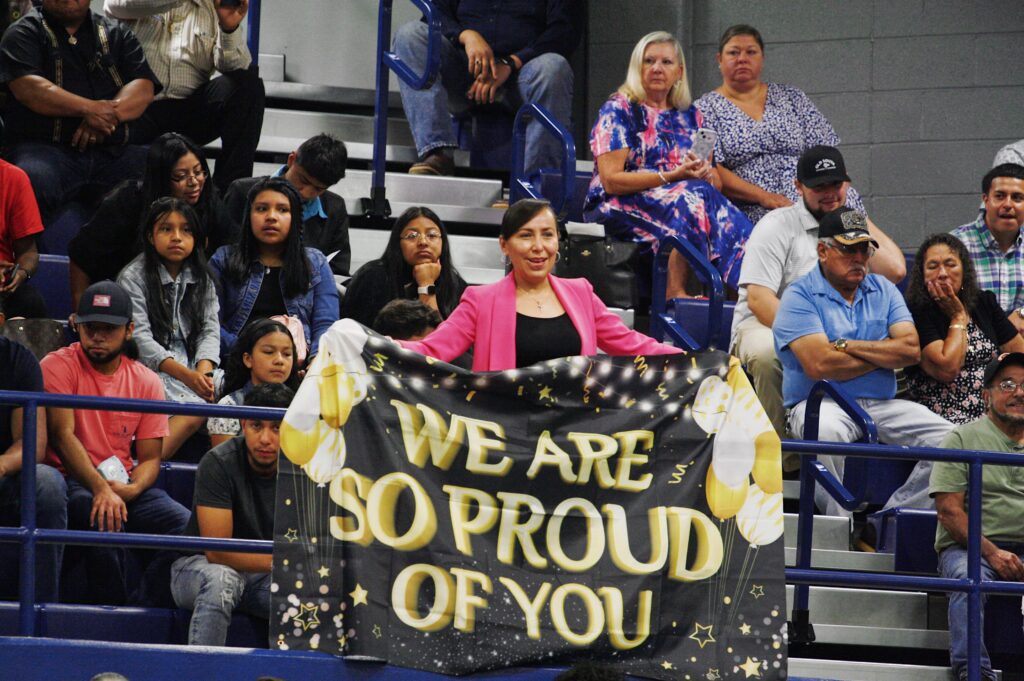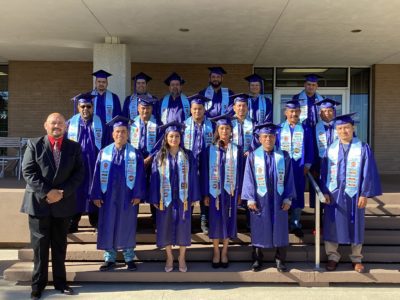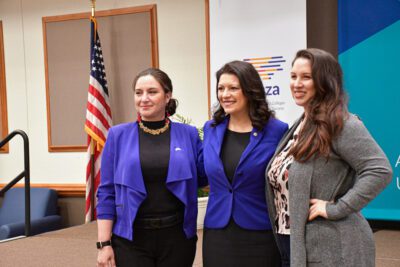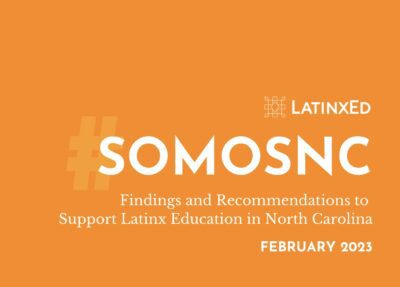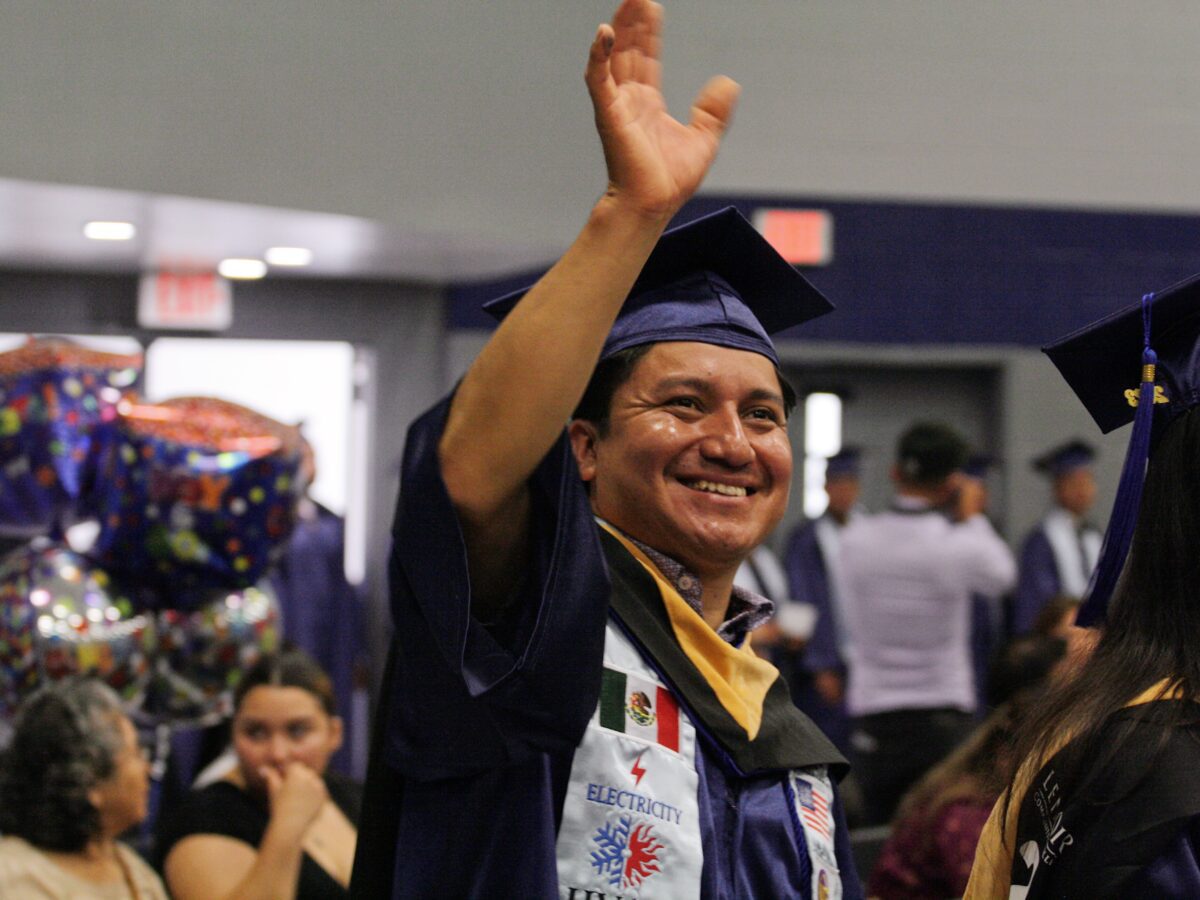

Share this story
- @LCCLancers’s Centro Educativo Latino celebrated 302 of its continuing education students with a bilingual graduation in June, including about 250 Latino graduates. The center offers around 70 Spanish-language workforce courses.
- “These kinds of events serve as important reminders of what investing in Latinx education can look like," said @LatinxEducation's Elaine Townsend Utin.
|
|
Lenoir Community College’s (LCC) Centro Educativo Latino celebrated 302 of its continuing education students with a bilingual graduation in June, which included about 250 Latino graduates.
More than 1,000 people gathered for the occasion, donning their Sunday best, flower bouquets, and celebratory balloons and posters. The auditorium was filled with cries of “Arriba!” – which literally translates to “up,” but colloquially means something like, “Let’s go!” – as the graduate procession filed inside.
The soon-to-be Lenoir alumni walked in with big smiles, happy tears, and excited waves to their family and friends in the audience. The graduating cohort included young students, adult learners, sons, daughters, and parents themselves – with one father and son even walking across the stage together during the ceremony.
“I’d like to congratulate all of you for this big achievement that I know was not easy,” commencement speaker Pilar Rocha-Goldberg, president and CEO of El Centro Hispano, said in Spanish. “This is because of your dedication and work, and the support of your family and friends. And of course, the opportunity given by Centro Educative Latino at Lenoir Community College.”
Centro Educativo Latino opened at the college nearly 10 years ago with the goal of creating a place in higher education for Latinos. Since then, the center has grown to offer around 70 Spanish-language workforce courses.
Over the last two years, the education center has served more than 2,000 Hispanic students, Carlos Cotto, director of Centro Educativo Latino, previously told EdNC.
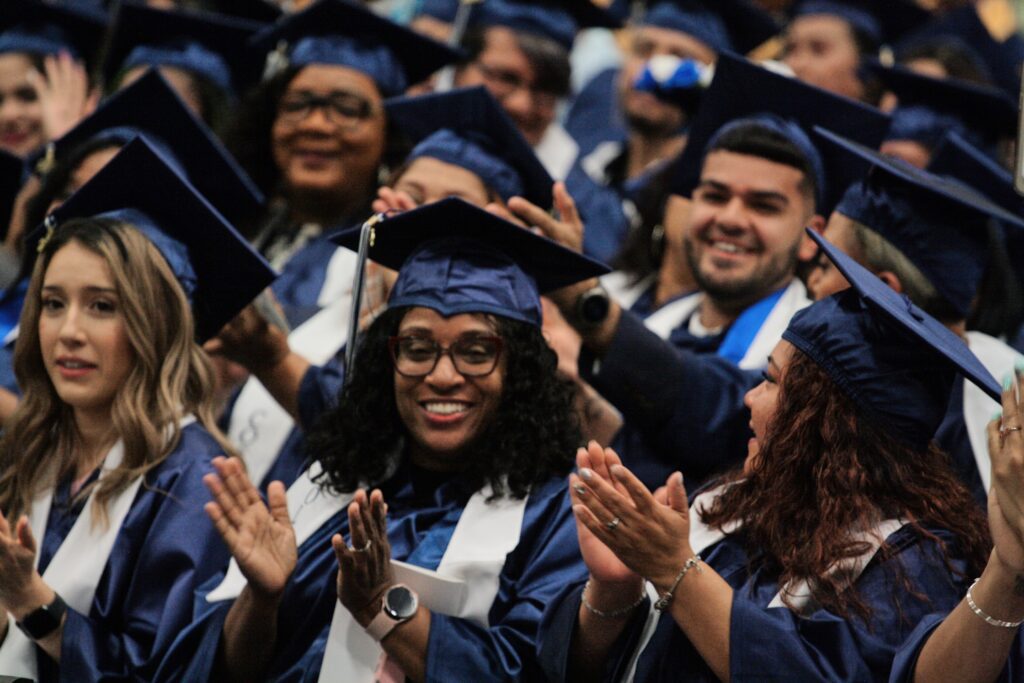

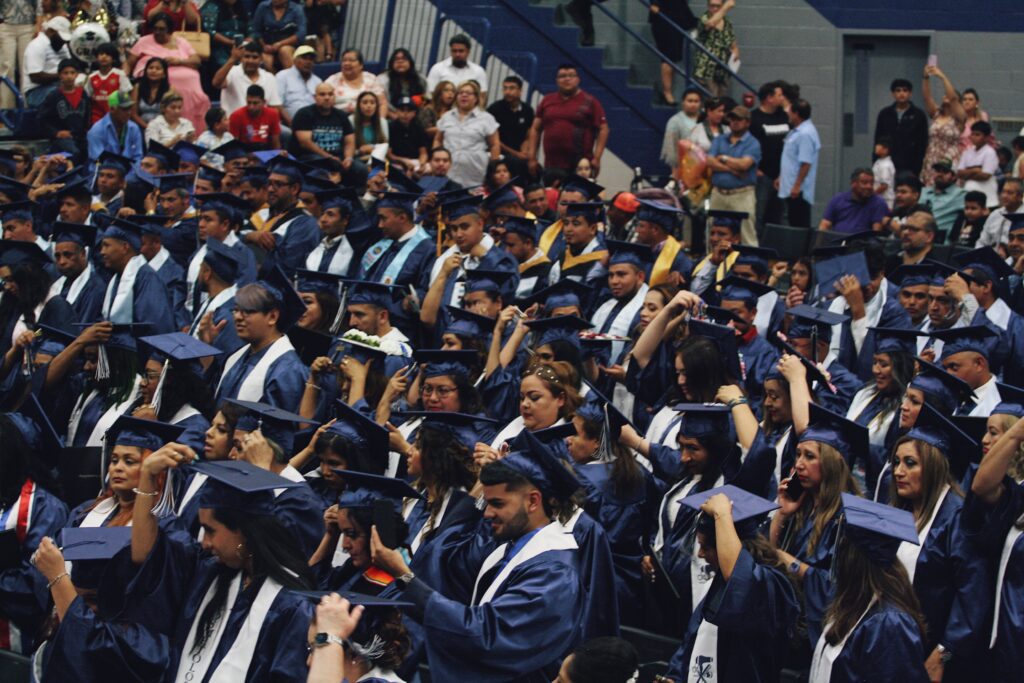

During her commencement speech, Rocha-Goldberg, who is Colombian, emphasized the importance and privilege of accessing higher education. She spoke about how both of her parents – who worked hard and overcame many adversities to attend college – instilled a deep value of education in her and her siblings.
“I think nearly everyone here heard this from our parents, ‘We don’t have money, we don’t have riches to give you, but we can give you education,'” she said.
Rocha-Goldberg immigrated to the United States from Colombia nearly 20 years ago to research hypertension and nutrition in Latino communities at Duke University Medical Center.
When she arrived, she told attendees, she struggled at first learning to live in a very different world – with a different language, food, culture, and even different driving techniques. She soon enrolled at Wake Technical Community College, taking night and morning classes, reviewing math and how to write academically in English.
While completing her research, she met people at El Centro Hispano. When she finished, she started volunteering with the organization. And 14 years ago, she became its president.
“And that means that you can do it, too,” she told the graduates.
She congratulated the graduates on their achievements, particularly in the face of challenges similar to those she faced. She then challenged them to work toward a reality where more people can say, “Si, se puede,” or, “Yes, you can.”
“Let’s believe that everything that we do can transform into something that can help the community,” Rocha-Goldberg said. “And remember, where there’s a will, there’s a way, meaning you can achieve all your dreams with hard work and dedication.”
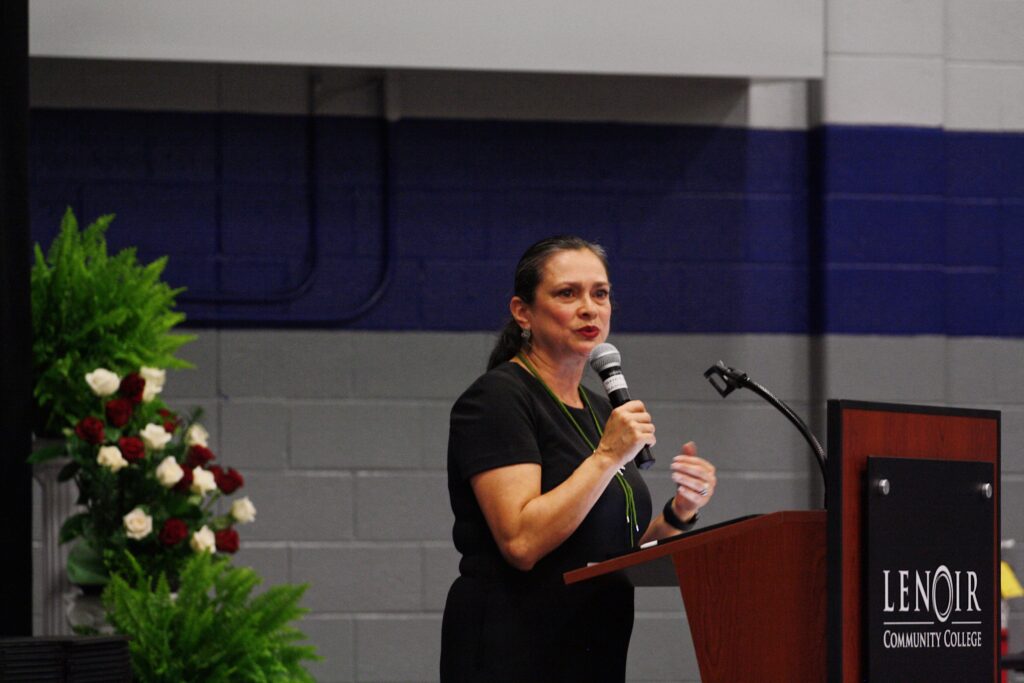

‘These kinds of programs and resources are game changers’
There are over one million Latino residents in N.C., according to the U.S. Census Bureau.
Despite this, many school systems and colleges have gaps for Latino students and families, according to LatinxEd’s new SomosNC report.
One of those challenges includes chronic underinvestment in hiring and supporting a bicultural and bilingual workforce in education, the report found, along with limited opportunities and advising support for postsecondary education.
Despite Hispanic students making up almost 20% of the population in North Carolina’s public schools, they make up only 8% of UNC System enrollment, and 14% of first-time, full-time N.C. community college enrollment, according to the report.
At Lenoir Community College, 14% of the student population is Hispanic, according to 2021-22 headcount data. That’s more than the county’s overall Hispanic population, which is 8.5% Hispanic, according to the U.S. Census Bureau. Nearly 8% of Lenoir County residents speak a language other than English at home, according to the same data.
Cotto believes Centro Educativo Latino plays a large role in the college’s enrollment of Hispanic students. At the June 24 ceremony, Cotto joined several other speakers in thanking Lenoir’s President, Dr. Rusty Hunt, for his investment in the program.
“As the Lenoir president said, this has changed the face of LCC,” Cotto, who is also Lenoir’s associate dean of workforce development and Latino programs, said about the center last fall. “Now we’ve got signs in Spanish, we have about 11 people in our division who are bilingual – that helps us communicate with a large number of individuals in our classes.”
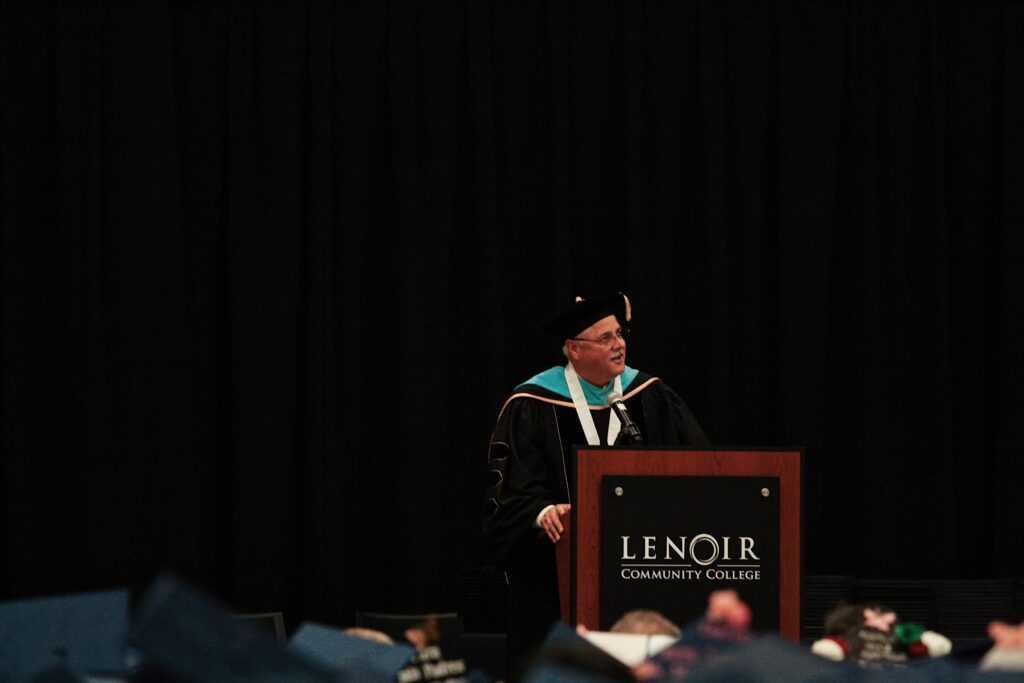

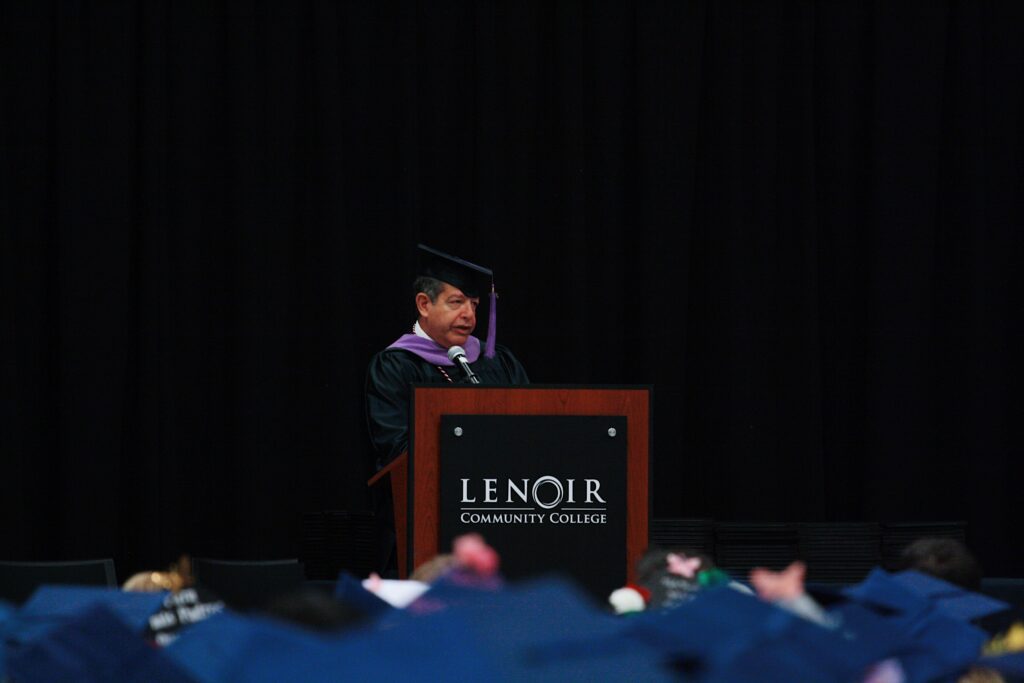

Elaine Townsend Utin, who is the executive director of LatinxEd and who attended the ceremony, said LCC is “a significant bright spot in a rural part of our state.” The education center serves students from 29 other North Carolina counties, Cotto previously said, and some out-of-state students.
“Led by a team brimming with Latinx and bilingual leaders, the successful programs and courses offered by el Centro Educativo Latino are examples of what is possible when educational institutions invest in Latinx education leaders. If our state does not invest significant resources in community colleges and programs like el Centro Educativo Latino, we’re doing it wrong and limiting opportunities to reach statewide post-secondary educational attainment goals. Ultimately, these kinds of programs and resources are game changers for improving educational outcomes for the Latinx community and beyond.”
Elaine Townsend Utin, executive director of LatinxEd
Classes offered at the center include HVAC, commercial refrigeration, welding, auto mechanics, energy distribution systems, and residential electricity, among many others. The center also offers classes for cosmetology, nail technicians, esthetics, and natural hair care. Students interested in learning English can take English as a Second Language (ESL) courses.
The center also offers weekend and evening class times to increase accessibility for people working full time or students who are parents.
“It’s quite an operation, but it’s been very beneficial,” Dr. John Paul Black, vice president of instruction and institutional effectiveness, previously told EdNC. “It’s not something that just benefits an isolated population. It has changed the face of services that are available.”
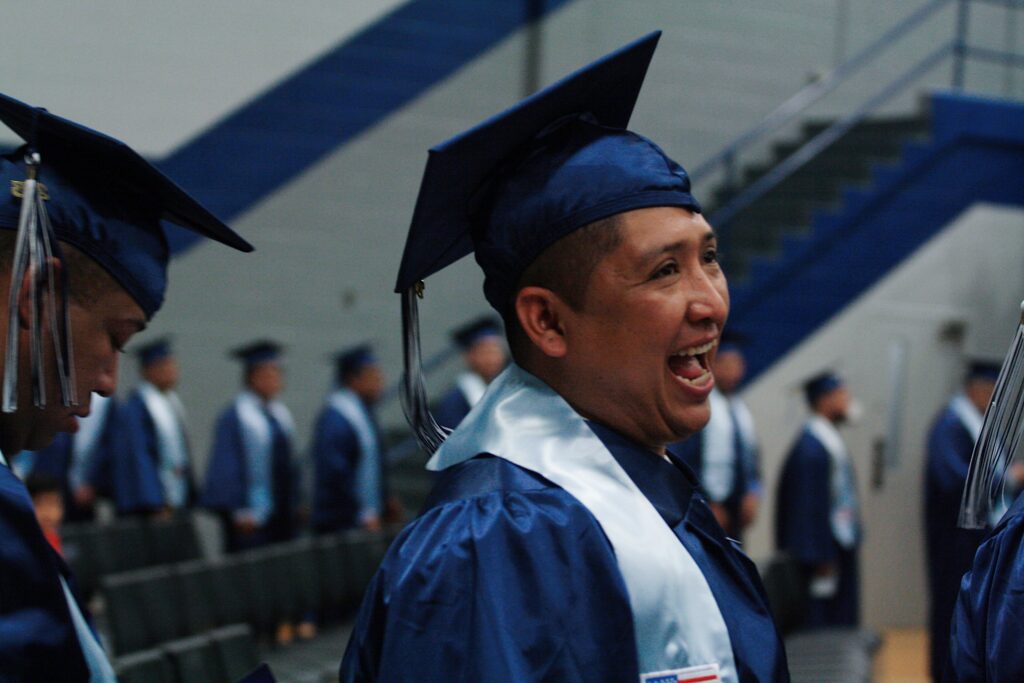

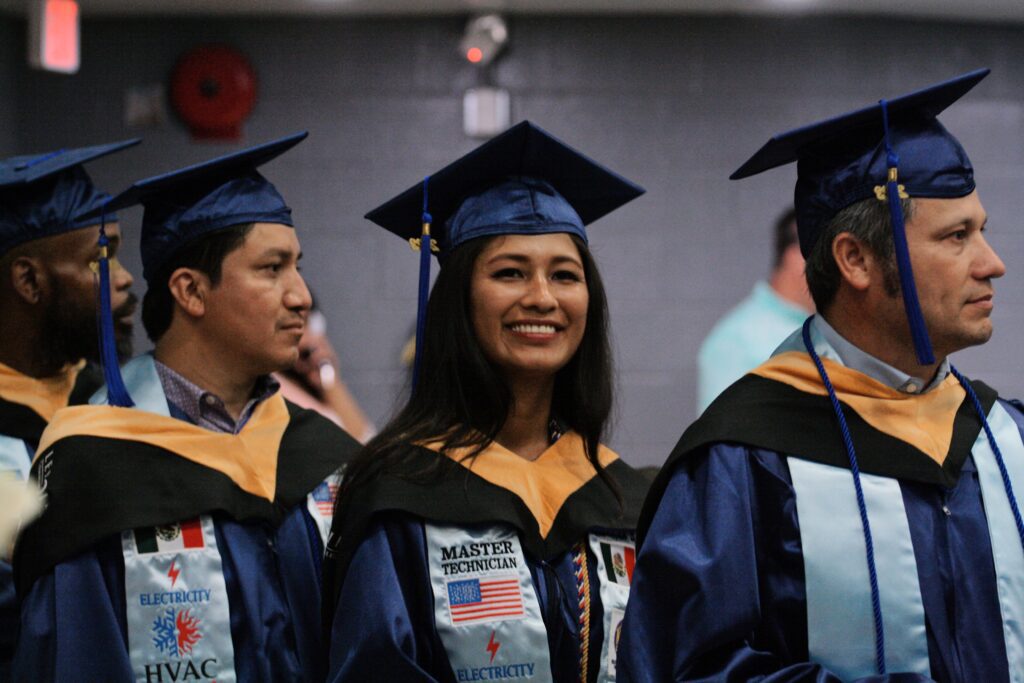

‘The power of community’
While the ceremony pointed to expanded access at LCC, it was first and foremost a celebration – a celebration of the hard work of the graduates, many of whom were the first to graduate from college in their families.
But the graduation was also a celebration of family, culture, and heritage.
Many students embroidered the U.S. flag on their stoles, along with the flag from their country of origin. Several students also wore flags over their shoulders to receive their diploma, or decorated their caps with them.
In North Carolina, such cultural expressions have not always been allowed at graduations.
In 2021, Asheboro High School’s principal asked one student, Ever López, to remove the Mexican flag he wore as he walked on stage to receive his diploma. In response, Utin wrote a perspective piece with her colleague, Carol Bono, titled, “An open letter to Ever López and all Latinx youth in North Carolina.”
That history is part of what made the ceremony so emotional to watch, Utin said.
“Watching a father and son cross the stage together and students embracing their cultural roots on their stoles during a bilingual ceremony, I was reminded of the power of community, education, and access,” she said. “These kinds of events serve as important reminders of what investing in Latinx education can look like.”
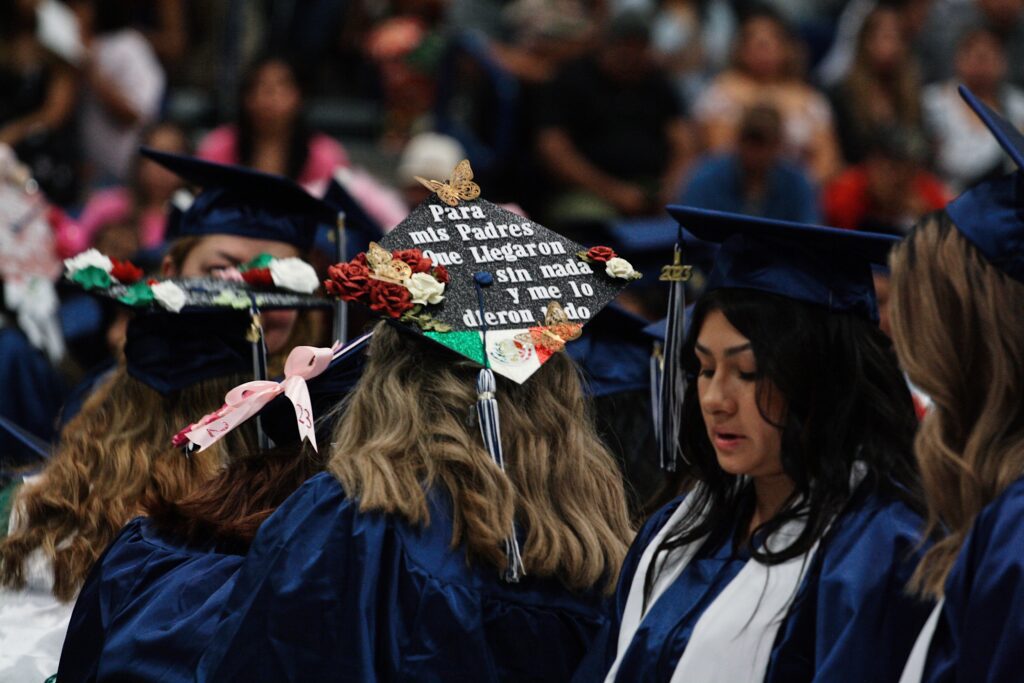

Such investment certainly means bilingual leadership and instruction, Utin said, which was evident at the graduation. In addition to bilingual graduation programs, the ceremony was also primarily conducted in Spanish.
But that investment also looks like intentional resources for adult learners, who might only be able to attend class at night or on the weekends. It also looks like “embracing students and their families as a unit,” Utin said.
Throughout the event, speakers did just that – continually congratulating the graduates and the family behind each one.
Originally, the college planned “Fiesta LCC” to celebrate graduates and their families after the ceremony. The event was set to include a Spanish rock band, folkloric Latin dance, bouncy houses, food trucks, community resources, and more. Due to bad weather, the event was rescheduled for Sept. 16.
During his bilingual welcome address, Paul Black said the ceremony itself is meant to celebrate both graduates and their families.
“We do it because we recognize the efforts that they’ve put forth to be able to sit here today with you. And it’s part of your effort – they’ve been away from you nights, weekends, and holidays,” he said. “But out of this sacrifice, it brings hope for us, for the next generation – it brings hope that others can follow in this path. That’s the reason we celebrate and recognize your efforts as a family – congratulations.”
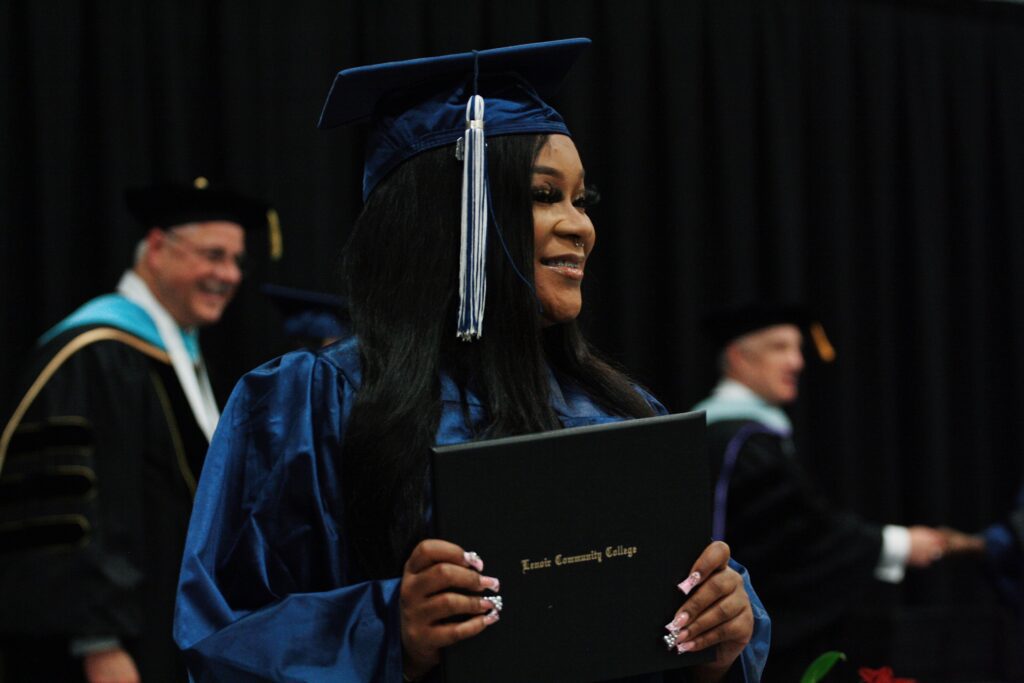

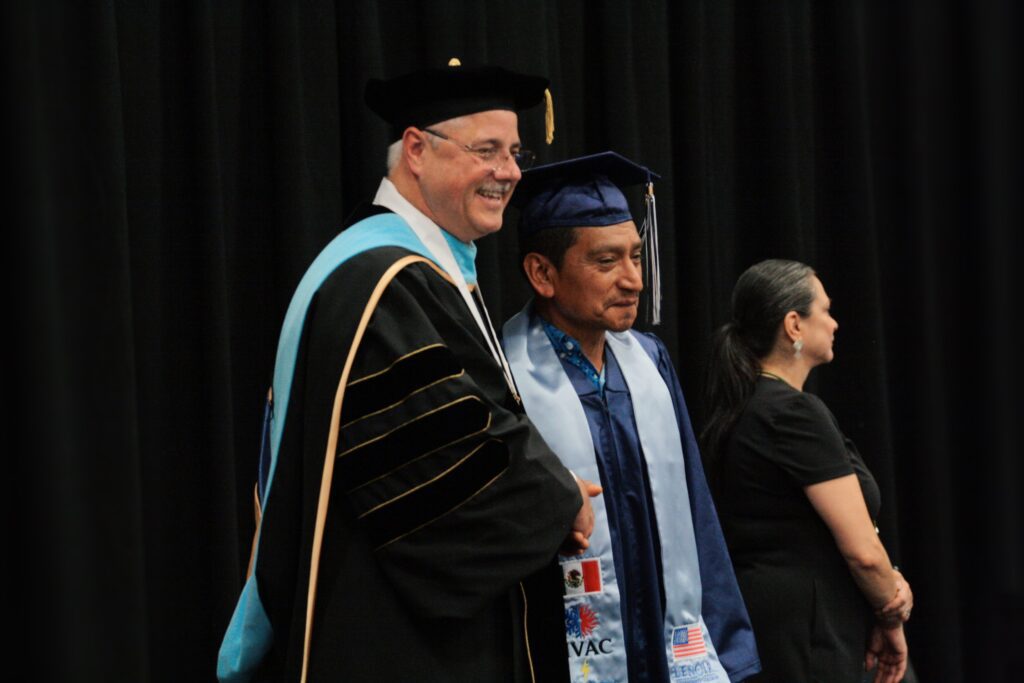

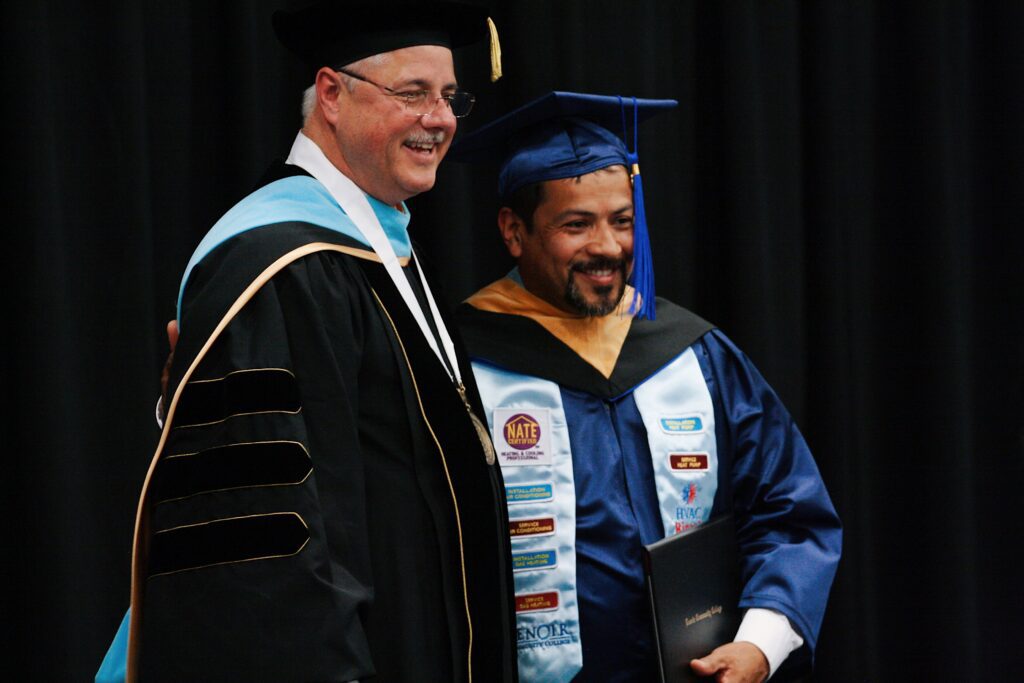

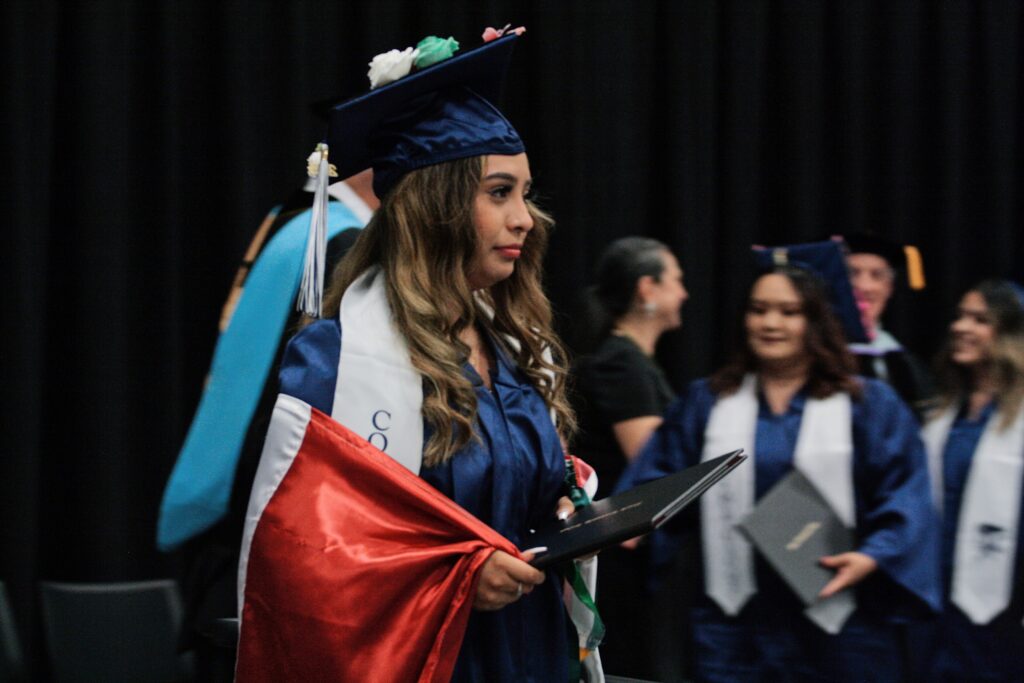

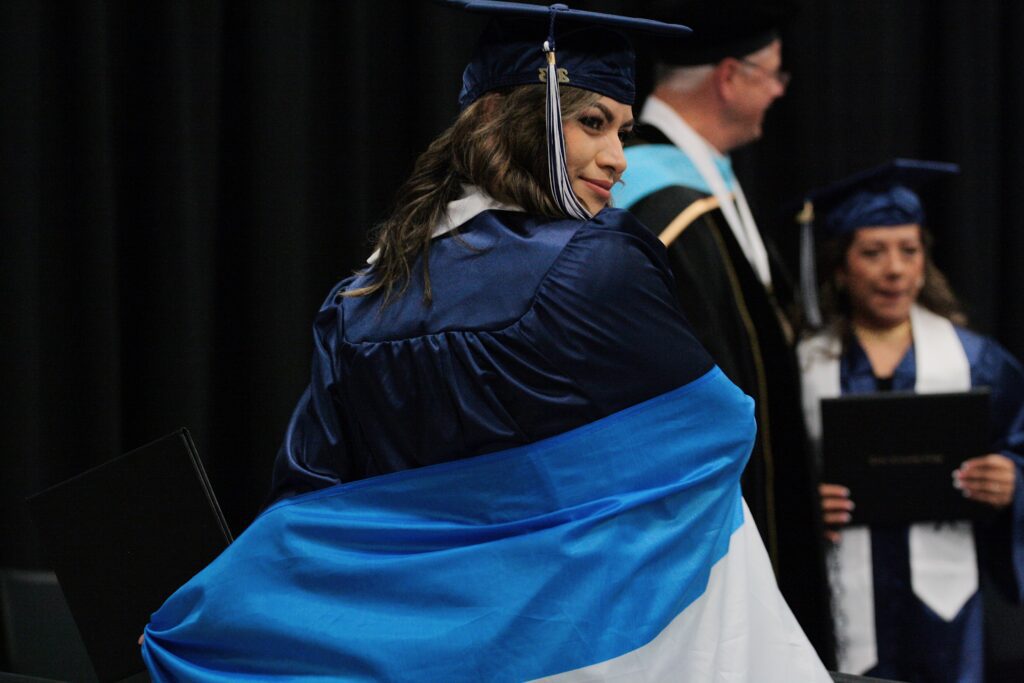

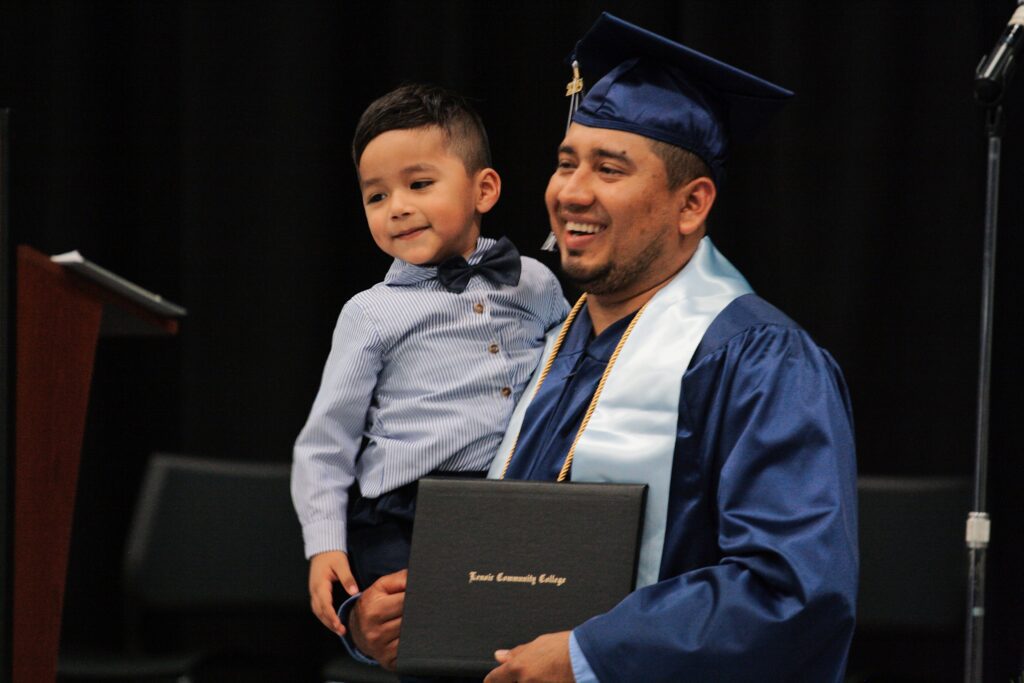

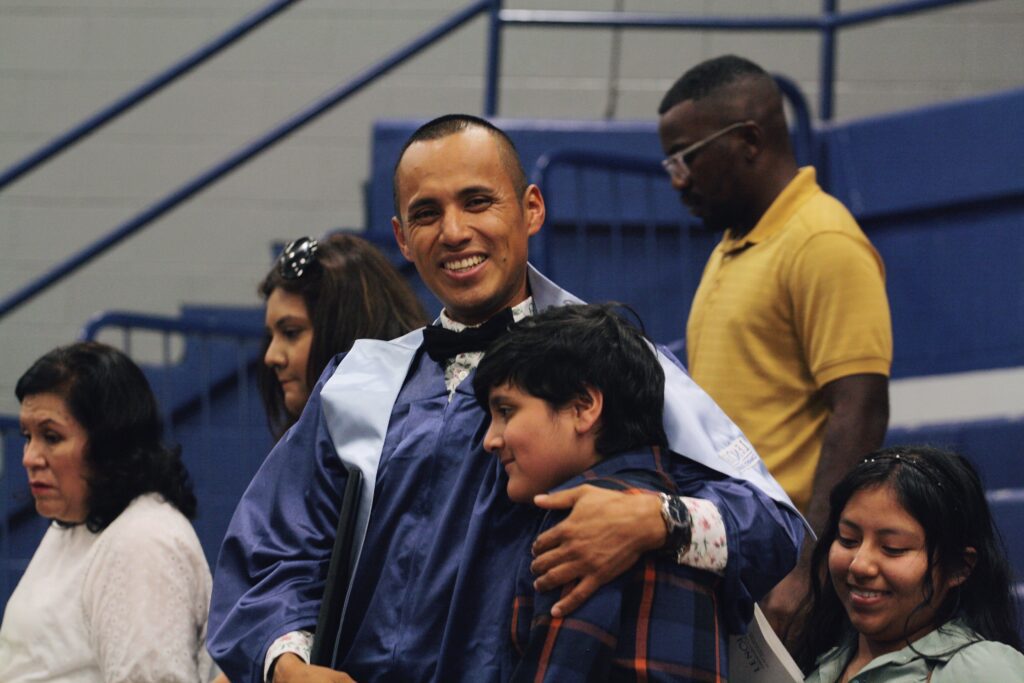

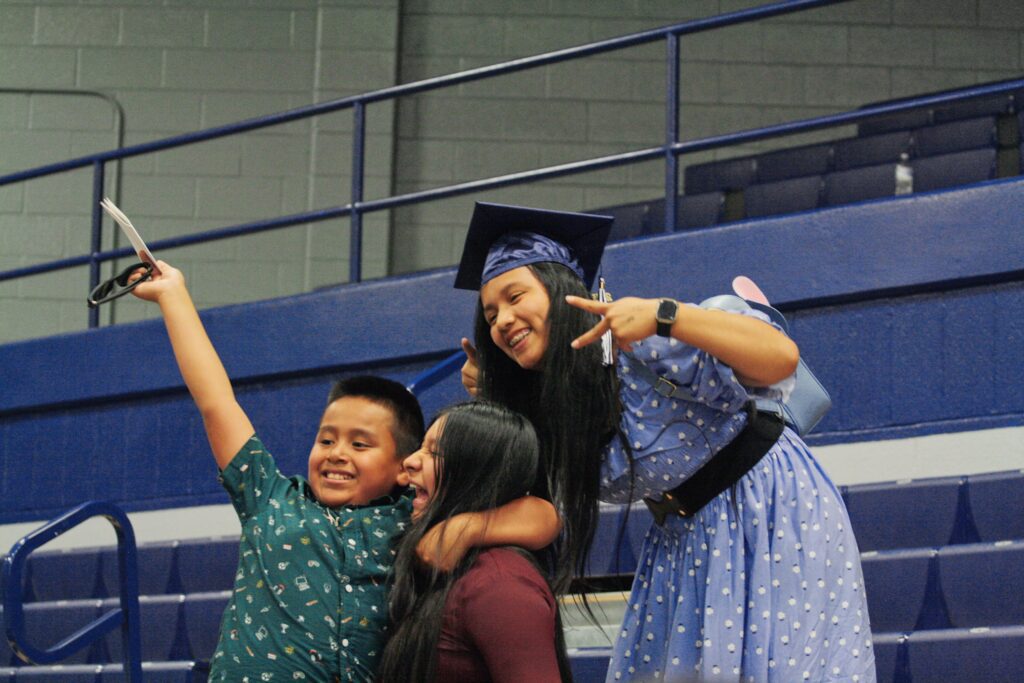

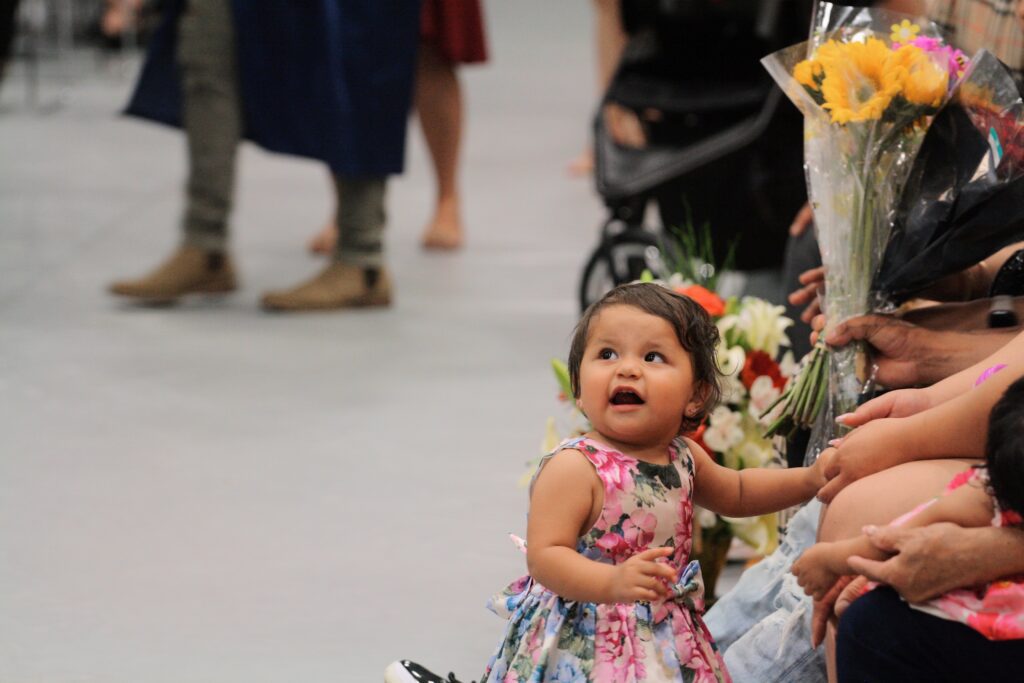

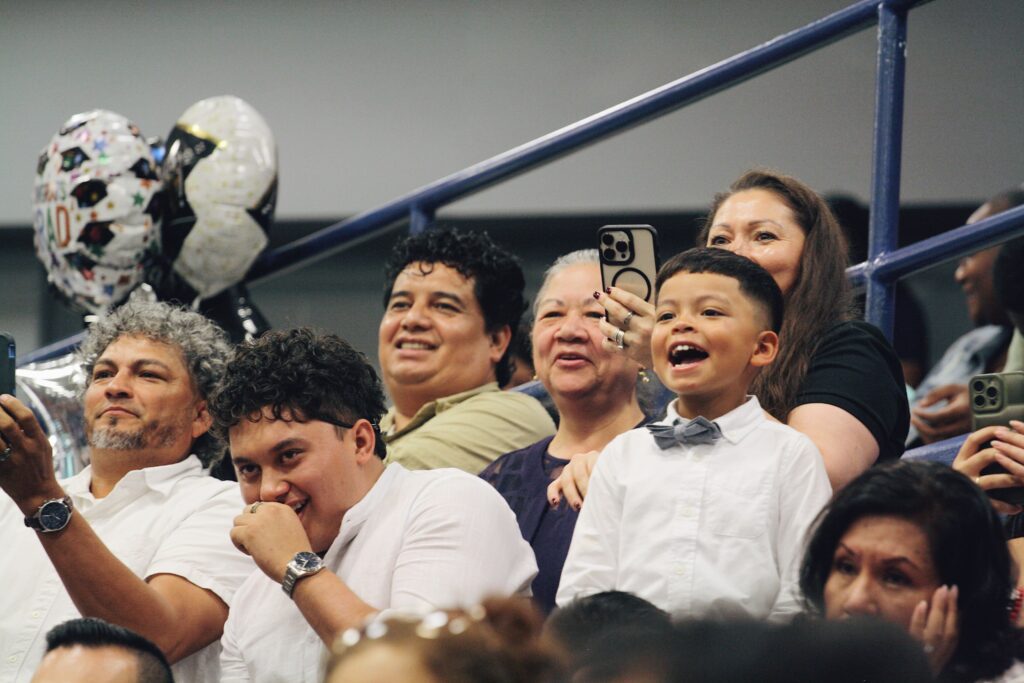

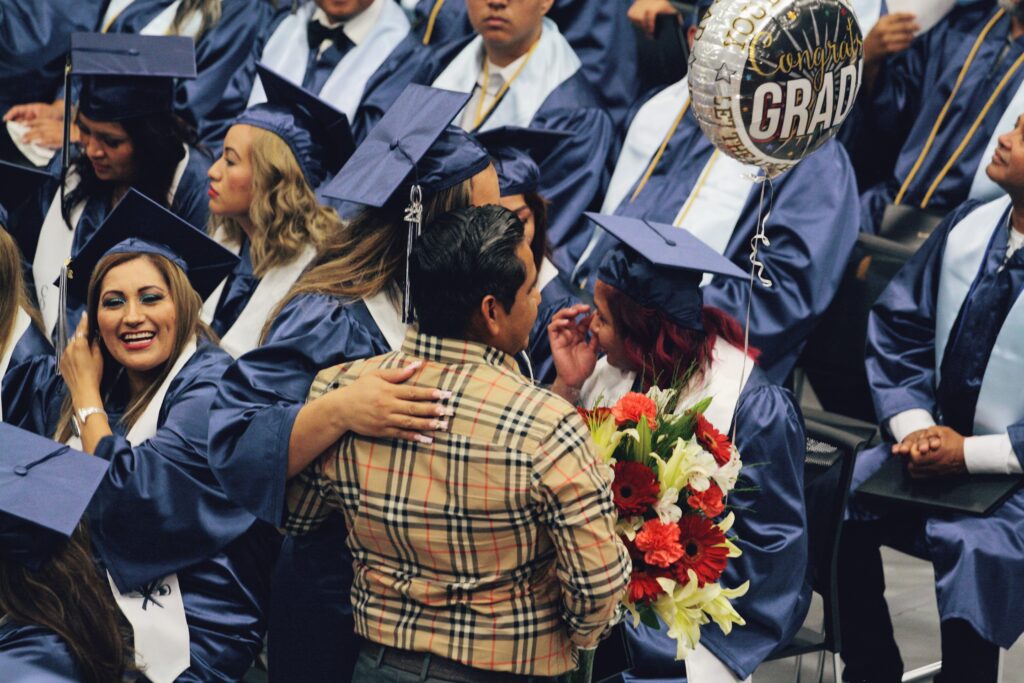

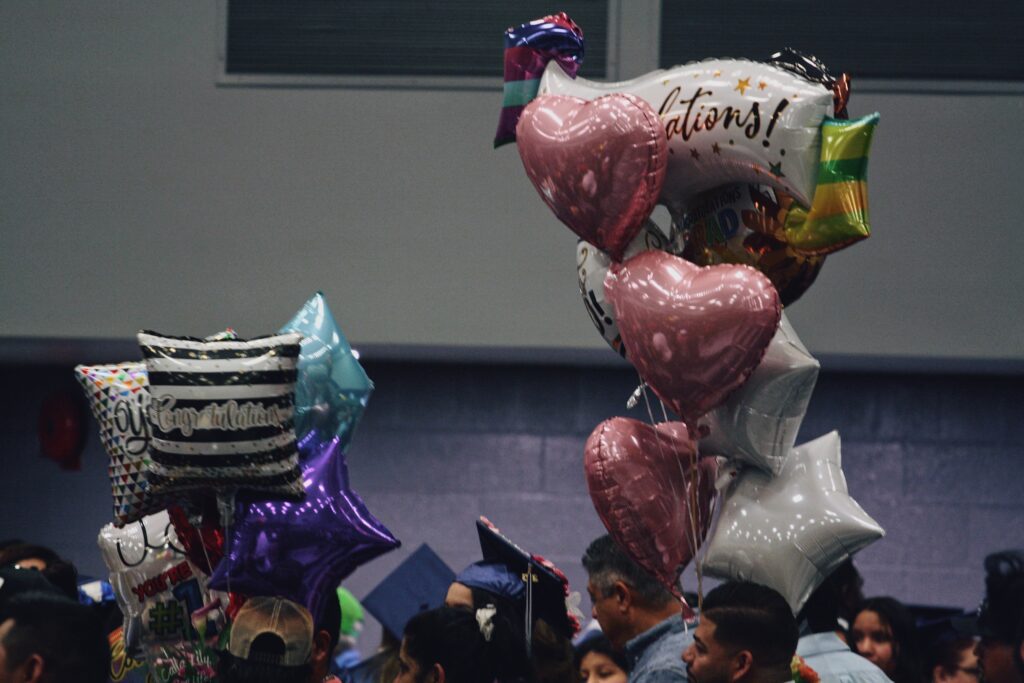



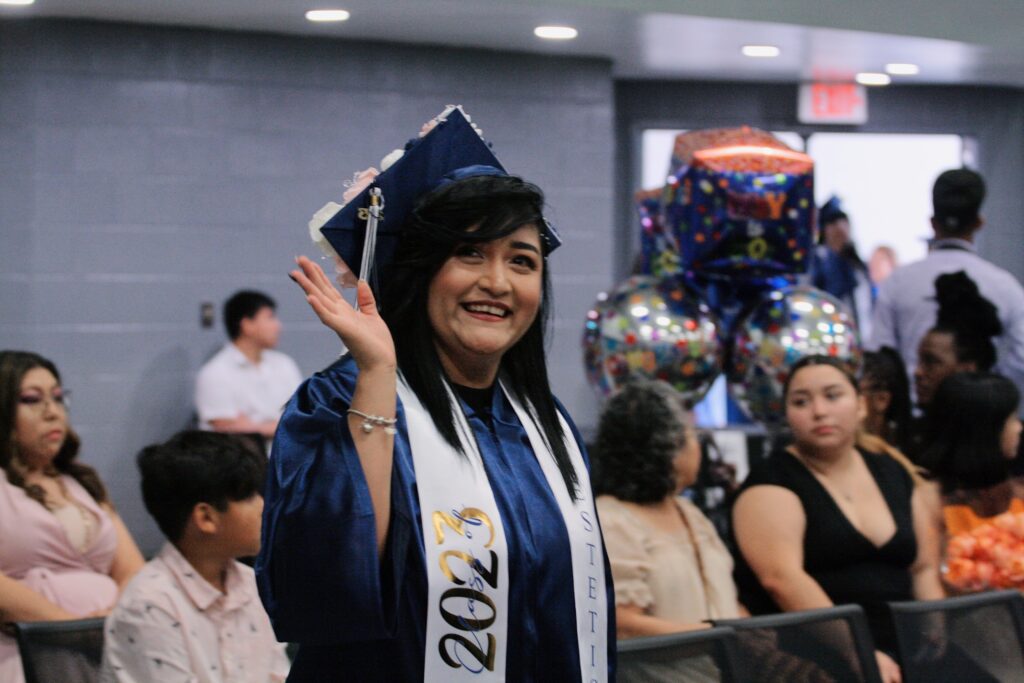

And lastly, a sign that captures how EdNC feels about all these graduates, too.
